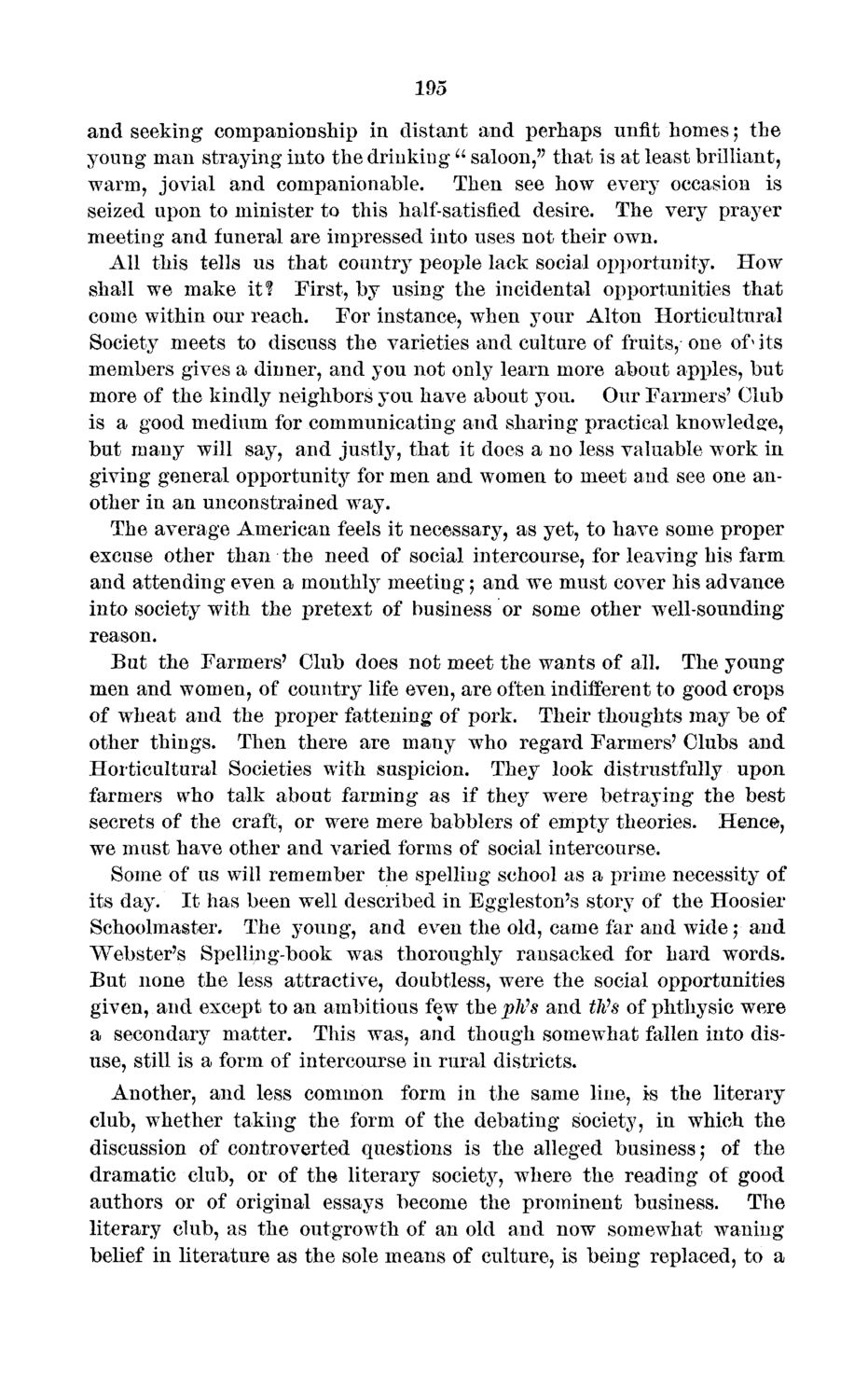| |
| |
Caption: Board of Trustees Minutes - 1873
This is a reduced-resolution page image for fast online browsing.

EXTRACTED TEXT FROM PAGE:
195 and seeking companionship in distant and perhaps unfit homes; the young man straying into the drinking " saloon," that is at least brilliant, warm, jovial and companionable. Then see how every occasion is seized upon to minister to this half-satisfied desire. The very prayer meeting and funeral are impressed into uses not their own. All this tells us that country people lack social opportunity. How shall we make it? First, by using the incidental opportunities that come within our reach. For instance, when your Alton Horticultural Society meets to discuss the varieties and culture of fruits, one of * its members gives a dinner, and you not only learn more about apples, but more of the kindly neighbors you have about you. Our Farmers' Club is a good medium for communicating and sharing practical knowledge, but many will say, and justly, that it does a no less valuable work in giving general opportunity for men and women to meet and see one another in an unconstrained way. The average American feels it necessary, as yet, to have some proper excuse other than the need of social intercourse, for leaving his farm and attending even a monthly meeting; and we must cover his advance into society with the pretext of business or some other well-sounding reason. But the Farmers' Club does not meet the wants of all. The young men and women, of country life even, are often indifferent to good crops of wheat and the proper fattening of pork. Their thoughts may be of other things. Then there are many who regard Farmers' Clubs and Horticultural Societies with suspicion. They look distrustfully upon farmers who talk about farming as if they were betraying the best secrets of the craft, or were mere babblers of empty theories. Hence, we must have other and varied forms of social intercourse. Some of us will remember the spelling school as a prime necessity of its day. It has been well described in Eggleston's story of the Hoosier Schoolmaster, The young, and even the old, came far and wide; and Webster's Spelli;ig-book was thoroughly ransacked for hard words. But none the less attractive, doubtless, were the social opportunities given, and except to an ambitious few the pWs and Ws of jmthysic were a secondary matter. This was, and though somewhat fallen into disuse, still is a form of intercourse in rural districts. Another, and less common form in the same line, is the literary club, whether taking the form of the debating society, in which the discussion of controverted questions is the alleged business; of the dramatic club, or of the literary society, where the reading of good authors or of original essays become the prominent business. The literary club, as the outgrowth of an old and now somewhat waning belief in literature as the sole means of culture, is being replaced, to a
| |